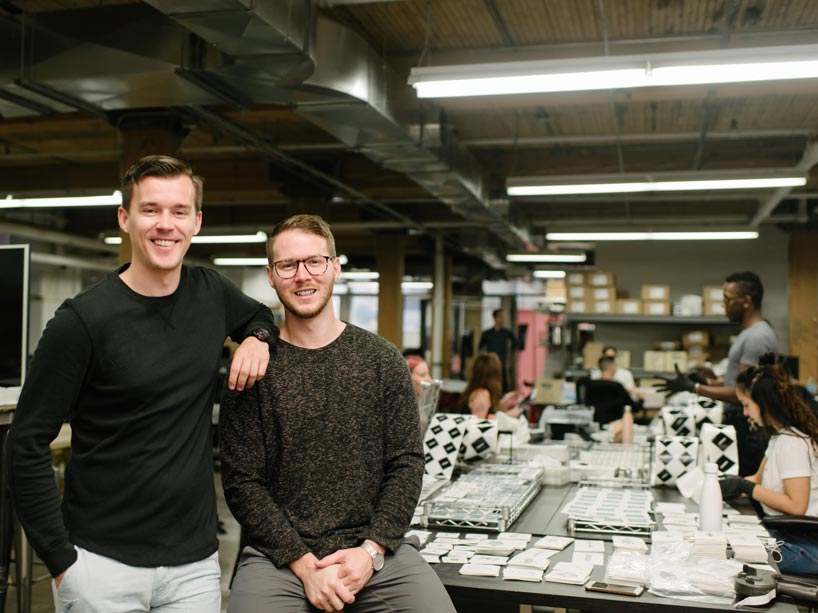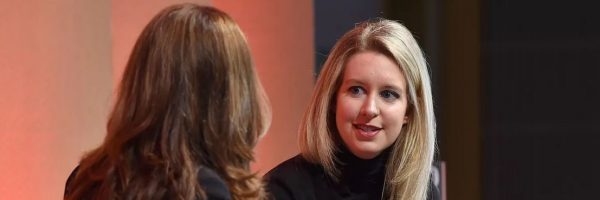Rotman Prof Talks MeToo Movement, and More – Toronto News

Professors and alumni from Toronto’s top business schools have been making headlines this week. See what they’ve been up to below.
The Corporate Climb: Women Locked Out of Old Boys’ Club in Misguided Me Too Backlash – Canada’s National Observer
The MeToo movement began as a way to shed light on the pervasiveness of sexual assault and harassment following the allegations against Hollywood power-producer Harvey Weinstein. Ideally, the MeToo movement would lead to more accountability for people in positions of power, and consequently, better boundaries in working and personal relationships. Unfortunately, progress often comes with backlash, which may be the case in Canada’s business world.
Instead of increased education about harassment and consent, many workplaces have taken to diminishing their liability via actions that hinder women. Because of this, some men in upper-level positions shy away from mentoring women or being in more intimate situations with them (e.g. a client dinner, or a business trip). However, Sarah Kaplan, professor at the University of Toronto’s Rotman School of Management, feels strongly that focusing on the backlash of the movement is counterproductive to the cause. In Canada’s National Observer, Kaplan says:
“It is just one more way that even an effort to lead to more liberation and equality has been co-opted. It is as if people don’t understand what they shouldn’t be doing. As long as you don’t grab someone or proposition them, you can take someone to lunch … It is completely obvious how to be professional.”
You can read more about the reaction to the MeToo movement here.
Tattoo Company Fosters a New Kind of Art – Ryerson Today
Braden Handley, a Ryerson University’s Ted Rogers School of Management Entrepreneurship graduate, co-founded Inkbox with his brother Tyler in 2015. Since then, the business has recently accrued $10 million CAD in funding. Inkbox offers semi-permanent tattoos made with organic materials, that last around two weeks.

Braden Handley (left) with his brother Tyler / Photo via ryerson.ca
“Ryerson helped me get into work mode immediately,” Handley tells his alma mater in a recent interview. “You were taught how to be an employee … We were given a lot of assignments that were real work assignments.” The company employs 60 people, who contributing to the distribution of 60,000 tattoos per month.
“Chase your dreams, but your dreams have to align with your natural abilities as well. Everyone has predispositions and skills.”
Get more familiar with Handley’s journey here.
Top 100 Corporate Social Responsibility Influence Leaders – Assent Compliance
Assent Compliance’s new list of the “Top 100 Corporate Social Responsibility Leaders” has arrived. The ranking analyzes those whose “efforts contribute to improvements throughout global supply chains, helping individuals and companies make a positive difference.”
The list includes notable people like Laura Chapman Rubbo, who helped create the human rights policy for Disney.
Dirk Matten, Professor at York University’s Schulich School of Business, lands 44th on the list. Matten, who holds the Hewlett-Packard Chair in Corporate Social Responsibility, serves as Schulich’s Associate Dean of Research.
Discover the full list here.
York Schulich Alum Designs for Meghan Markle, and More – Toronto News

Representatives from Toronto’s top business schools have been making the news this week. See what they’ve been up to below.
Canadian Designer Bojana Sentaler Goes Global After Meghan and Kate Made Her Coats Famous – Notable Life
Bojana Sentaler, graduate of York University’s Schulich School of Business, has attained enviable success in fashion design after both Kate Middleton and Meghan Markle were seen wearing coats from her collection. After years in the corporate world, Sentaler moved in a different direction, and decided to pursue her passion for design. Her business acumen was not wasted in her new field, as Sentaler quickly identified a need in Canada for outerwear that balanced elegance and warmth. She filled this need using alpaca fabric, which she discovered on a trip to Peru. In a recent interview, Sentaler said:
“There are some truly brilliant designers here in Canada, that deserve to be recognized on a global platform. But first our consumers need to support Canadian by proudly wearing Canadian, and our industry as a whole needs to support and recognize Canadian potential.”
Learn more about Sentaler’s journey here.
CMHC Moves to Make It Easier for Self-Employed to Get a Mortgage – CBC News
Traditionally, self-employed people in Canada have encountered more difficulty getting mortgages, making it much more complicated for them to purchase a home. However, the Canada Mortgage and Housing Corp. (CMHC) has made changes that will increase the flexibility of mortgage grants. Lenders can now use factors such as predictable earnings and previous training and education to justify giving a mortgage to someone who is self-employed.
Cynthia Holmes, Chair of the Real Estate Management Department at Ryerson University’s Ted Rogers School of Management, was optimistic about the changes, particularly insofar as they might help younger professionals lay down roots more quickly.
“This change could especially help young self-employed people access a mortgage more quickly, which supports innovation and entrepreneurship,” Holmes says to CBC News.
Learn more about the CMHC’s changes here.
All Work And No Play Can Make Us Less Productive, Research Shows – Australia Financial Review
A forthcoming study has demonstrated that long hours and stressful work have long-term negative impact on employees. The study (“Implications of work effort and discretion for employee wellbeing and career-related outcomes”) demonstrated that running employees ragged could have long term effects on their health and success.
According to the study, which was authored by Argyro Avgoustaki and Hans Frankfort, working more hours at a higher intensity does not enhance career prospects down the line. Efforts to protect the health of employees have generally emphasized shorter hours, but the study shows that controlling the intensity of the workload may actually be more important. Other researchers in the field have shown support for this perspective.
Erin Reid, associate professor at McMaster University’s DeGroote School of Business, co-authored an article with Lakshmi Ramarajan, assistant professor at Harvard Business School, for the Harvard Business Review. According to the article, “Valuing work time over work product—which motivates people to deceive others about how many hours they’re clocking—is an easy trap to fall into, especially for professionals, whose knowledge-based work is difficult to evaluate.”
Read more about the new research here.
Schulich Alum Shares His Experience, and More – Toronto News

Toronto’s business schools have seen some exciting developments from students, alumni, and faculty this week. Let’s take a look at some of the high points.
Alumni Stories: Michael Zanella – MMgt – Schulich School of Business
A Schulich School of Business alum was recently profiled on his time in the school’s new 12-month Master’s of Management program.
Michael Zanella, a 2017 graduate, who turned his education into a role with Ceridian Dayforce as an Implementation Consultant Associate. You can watch his full interview below.
Wine, Beer, Spirits Brand-Builder WX Names Michael Lukan CFO – North Bay Business Journal
Michael Lukan was recently named the official new CFO of WX Brands, a company that creates wine, beer, and spirits. Lukan, an alum of Western University Canada’s Ivey Business School, co-founded Wine Hooligans in 2013. He has also worked at Purple Wine Company and Sonoma Wine Company. With news of the Lukan’s arrival at the company, WX Brands President and CEO Peter Byck says, “His well-rounded experience and entrepreneurial mindset will make him a great asset for WX Brands to continue to build on our tremendous growth.”
Regarding his new role, Lukan says, “Peter and the WX team have positioned the company for tremendous growth by delivering an exceptional customer experience and I’m looking forward to helping realize this opportunity.”
You can read more about Lukan and WX Brands here.
What Is Less Scary in the Dark? – Scientific American
Ping Dong, a Professor at Northwestern University’s Kellogg School of Management, and Chen-Bo Zhong, Professor at the University of Toronto Rotman School of Management, recently conducted a study that examined the, “impact of visual darkness on people’s perceived risk of contagious-disease transmission.” The researchers predicted that the darkness would make people feel more separate or insulated from one another, so they would be less squeamish about the germs of those around them. In fact, the study concluded that being in a darker environment would make subjects reduce their caution when it came to unethical behavior, of which might include cheating on one’s significant other and other acts of selfishness.
Their research showed that perceived risk of contracting airborne illnesses decreased when participants were in more dimly-lit rooms, as well as when they were wearing sunglasses. “In addition,” writes Scientific American writer Cindi May, “visual darkness increased participants’ perceived distance from the confederate, and this increase in distance mediated the reduction in perceived risk of contagion in the dark. Their fear of non-contagious diseases did not depend on the lighting.”
You can read more about the duo’s research here.
The MBA Real Estate Boom: Inside The Schulich Real Estate Program

Real estate is booming. In fact, according to the Financial Times, commercial property asset values and investment yields have surpassed levels prior to the Great Recession, and there is continued strong demand for offices, urban apartments, and more. It’s all thanks to continued low interest rates and tight supply.
What has this real estate boom meant for business schools? It’s meant a decrease in interest in banking and an increase in interest for real estate study, particularly among MBA students who understand the cycle and want to get involved while they can. The reality is that there are many jobs in real estate, and that’s what MBA students want.
According to Sherena Hussain, an assistant professor in Infrastructure at the York University Schulich School of Business, “The real estate and infrastructure sectors account for a large proportion of a nation’s GDP.” So, it shouldn’t be surprising that many top MBA programs are prioritizing real estate curriculum, specializations, and clubs for their students.
Real Estate and Infrastructure at the Schulich School
Real estate and infrastructure have an indispensable role at the Schulich School. Not only does the school offer a Master of Real Estate and Infrastructure (REI), but MBA students can also specialize their curriculum with a focus on REI. The MBA specialization focuses on “creating and maintaining places for living, working, shopping, learning, recreation and culture, and the critical accompanying support systems ranging from mobility and logistical networks, to utilities and energy supply,” according to the school website.
One of the reasons behind the MBA REI specialization at Schulich is Toronto itself.
“Many of the leading global Real Estate and Infrastructure firms are located in Toronto,” explains Hussain. “If you are interested in a career in real estate and infrastructure, Schulich’s MBA specialization is a rare opportunity to develop your understanding, skills, and network in a way that leverages the specialization’s top-tier reputation and committed faculty and alumni base.”
As part of the REI specialization, students must complete 12 credits focused on real estate including two required courses: Real Estate Finance & Investment and Development Prototypes. Other potential courses include:
- Partnership Models for Infrastructure Delivery
- Structuring Real Estate Transactions
- Commercial Real Estate Asset Management
“The idea behind the REI MBA specialization is to bring students to industry and industry into the classroom,” Hussain outlined in an email exchange with MetroMBA.
“Our faculty and sessional instructors have real-world experience and bring this perspective into the classroom by leveraging experiential learning at its finest. Examples include flying in senior policy officials to judge a capstone assignment about international infrastructure, bringing leading CEOs into the classroom as guest speakers in REI investment classes, or partnering with a leading national-law firm to have our students learn how to negotiate joint venture agreements. This is a small sample of how the REI MBA specialization approaches holistic learning.”
But holistic learning isn’t just regulated to the MBA program and inside classrooms. It can be found throughout the school, including within Schulich’s Real Estate and Infrastructure Club (SREIC).
Schulich Real Estate and Infrastructure Club
SREIC is open to all Schulich business students interested in learning more about pursuing a career in real estate and infrastructure. The club acts as a liaison between students, the industry, and professionals.
“SREIC offers MBA students an opportunity to supplement their learning with real-world, co-curricular programming and unique networking opportunities,” says Hussain. “It’s a student-run group that has the full backing of Schulich’s Real Estate and Infrastructure program faculty, and it is one of the most active student groups at the business school.”
Programming offered by the club includes:
- Value-Oriented Programming: site visits, breakfast seminars, conference engagements, project panels, case competitions, etc.
- Deep Industry and Alumni Relations: on a one-on-one and broad basis through speed mentoring, recruitment breakfasts, and keynote events.
- Leadership Development Opportunities: including the semi-annual resume book circulated to recruiters and senior leaders.
There are also several keynote events that take place each year including Schulich’s Developers’ Den international case competition, ARGUS training, and Schulich’s annual Perspectives Lecture. And one event that just took place in February was the annual New York City real estate study tour.
The study tour is part of a partnership with Columbia University’s real estate program, beginning several years ago. It’s a three-day intensive and transformative real estate experience that takes students to site visits and tours of leading real estate and infrastructure firms all over NYC. Some of those firms include Blackstone, Related Companies, Oxford, Vornado Realty, WSP, Brookfield, and Silverstein Properties. The goal is to give students a glimpse into the future of real estate
“Schulich students benefit from learning more about a new market, as well as having a basis for global comparative learning,” Hussain explains. “The partnership [with Columbia] offers an opportunity to develop a network of peers engaged in commercial real estate development in New York City and across the U.S. Each year, the club visits a development class held at Columbia University to learn more about their approaches to learning about real estate. In return, the Schulich School hosts an annual friendship dinner in Manhattan to offer more opportunities for students, alumni, and friends of industry from Canada and the U.S. to forge relationships.”
The trek is a unique event that gives Schulich students a chance to explore real estate and infrastructure in a whole new way.
“The 2018 SREIC New York trip was an excellent and well-balanced learning experience for students who are truly passionate about real estate and infrastructure,” says James Chang, an MBA student working to his REI specialization. “A prime example of ‘outside the classroom’ learning with the perfect balance between education, relationship building, and fun. I would highly recommend it to students in the MREI or MBA program to take advantage of this opportunity next year!”
To learn more about real estate and infrastructure at the Schulich School of Business, visit the school’s website.
‘Shark Tank’s’ Mr. Wonderful Talks About MBAs, and More – Toronto News

Take a look at some of the top stories coming out of the Toronto business schools this week.
Kevin O’Leary: Here’s How Much an MBA Matters in Business – CNBC
Kevin O’Leary may be one of the most successful businessmen in Canada now, but when he graduated from the University of Waterloo in 1977, he struggled to even land an entry-level job. After two years of frustration and rejection, O’Leary decided to pursue an MBA at Western University Canada’s Ivey Business School. The business giant, known on ABC’s Shark Tank as “Mr. Wonderful,” sees his decision to enroll at Ivey as a turning point in his life.
“The real value of an education is who you meet while you’re getting it,” O’Leary said in an interview with CNBC. “Think about that if you’re in college right now.”
“‘The great thing about an MBA is not the technical skills you’ve learned—because frankly, to be honest with you, I forgot all of those—it was the people I met in my class,’ O’Leary explains.
‘Where are they now? Running banks, they’re industrialists, they’re venture capitalists, they’re investors, they’re all around the world,’ he says. ‘I can pick up the phone and say, ‘Hi. Mr. Wonderful here, let’s talk about a business idea.'”
You can read more about O’Leary’s education and success here.
Bank of Canada Fellowship for Rotman School Professor Renewed for Second Term – EurekAlert!
In 2013, Peter Christoffersen, professor of finance at the University of Toronto’s Rotman School of Management was awarded the Bank of Canada Fellowship, which was recently renewed. The Fellowship Award goes to academics whose research provides insight in areas essential to the bank. Christoffersen has been committed to researching new technology and its effects and potential in the finance realm.
“The Bank is pleased to renew its support for Professor Christofferesen’s work,” said Governor Stephen S. Poloz. “He is helping to shed light on some important issues facing Canada’s financial industry.”
Learn more about Christoffersen and the Bank of Canada Fellowship Award here.
Schulich Students Win Developers’ Den Competition – RemiNetwork
Two groups of students from York University’s Schulich School of Business placed in the top three in this year’s Developers’ Den international case competition. The winning team was made up of four students from Schulich’s Master in Real Estate and Infrastructure (MREI) program: Derek Wei, Jordan Trinder, Alannah Bird, and Bao Nguyen. The competition, which took place on March 23rd, is in its eighth year.
“The Developers’ Den competition provides an important opportunity for the best students to develop and showcase their analytical, creative and presentation skills as emerging talent in front of leaders within the real property sector,” said Jim Clayton, who was recently appointed to the Timothy R. Price Chair at Schulich’s Brookfield Centre in Real Estate and Infrastructure. “We are grateful for the tremendous support the competition receives from industry and alumni.”
Check out more about the competition here.
Rotman Prof Talks Theranos Fraud, and More – Toronto News

People affiliated with Toronto‘s finest business schools have been making the news. Below, we’ve laid out some of this week’s highlights.
How Board Diversity Might Have Prevented the Theranos Fiasco – The Globe & Mail
Andras Tilcsik, Canada Research Chair in strategy, organizations, and society at the University of Toronto’s Rotman School of Management coauthored an opinion piece in The Globe & Mail with Chris Clearfield, Principal at System Logic. The article addressed the fraud charges lodged against Theranos founder Elizabeth Holmes.
Holmes, who was listed as one of Forbes’ “Youngest Self-Made Billionaires” has been charged with “massive” fraud involving upwards of $700 million USD. Holmes has agreed to cede control of her company, which was boating more innovated methods of blood-testing to potential investors.
Tilcsik and Clearfield argue that Holmes’s mistakes might have been prevented had a systemic problem in businesses been addressed at Theranos: board diversity. All but two Theranos board members were white men over 60. According to the article, “… lab experiments show that while homogeneous groups do less well on complex tasks, they report feeling more confident about their decisions.”

Holmes’ equity stake in Theranos, the notorious blood-testing startup she founded, has been reduced to virtually nothing after being charged with large-scale fraud from the SEC.
Learn more about the importance of board diversity here.
YouTube Star Choreographs a Career Blending Bollywood and Business – The Globe & Mail
Shareen Ladha, graduate of York University’s Schulich School of Business, used her MBA to guide her in an unconventional career goal. She wanted to build success producing and dancing in Bollywood-esq videos on YouTube, achieving massive momentum when she did a Bollywood-style remix of Justin Bieber’s “Sorry.” The video quickly went viral, and now Ladha balances making YouTube videos with her career as a senior strategist with McCann.
“Through my MBA, I decided that this was the thing that made me unique and it was proof I could bring a creative aspect to strategy and consulting,” Ladha said in a recent profile with the Globe & Mail.
“It started getting woven into my daily life and daily conversations I would have with people. All my social media accounts were public, so if they ever looked me up or were friends with me, they’d know about it. There was such a positive response.”
You can read more about the YouTube star here.
Ivey Students Learn the Three Gs of Good Investing – News@Ivey
Multi-billion dollar Brazilian investment firm 3G Capital Management recently let students at the Ivey Business School at Western University Canada in on a simple secret: the three Gs to successful investing are “good business, good management, and good price.”
3G managing partner Pavel Begun spoke with professor George Athanassakos and his value investing class last month, further explaining what each of those three Gs (get it?) meant:
Good Business:
“’We define good business as one that is competitively entrenched, generates high return of invested capital and is in solid financial shape.’” Specifically, 3G looks at businesses that are industry leaders and show industry longevity in order to predict their future value. They also look to businesses that generate with ROEs, or return on equity, of 15 per cent and above. Finally, they look at the debt payback period of business to ensure it is no greater than three to five years, helping to determine their financial shape.”
To read the rest of the advice gifted from Begun, click here.
What Toronto MBA Can You Earn in the Least Amount of Time? – MetroMBA
Several of the most well-regarded business schools in Toronto offer MBA programs that do not take the typical two-years that a traditional full-time degree often requires.
For instance, the DeGroote School of Business at McMaster University has an accelerated program that takes just eight months to complete. Alanna Shaffer further explains:
“By exempting students from the required first year MBA courses, students can earn their degree quickly while also cutting their overall tuition expenses in half and accelerating their path to employment. The program is designed for students who have earned their undergraduate business degree in the last ten years, and have at least one year of professional experience. Students may start the program in either September or January.”
Check up on the rest of the fastest MBA programs in Toronto here.
